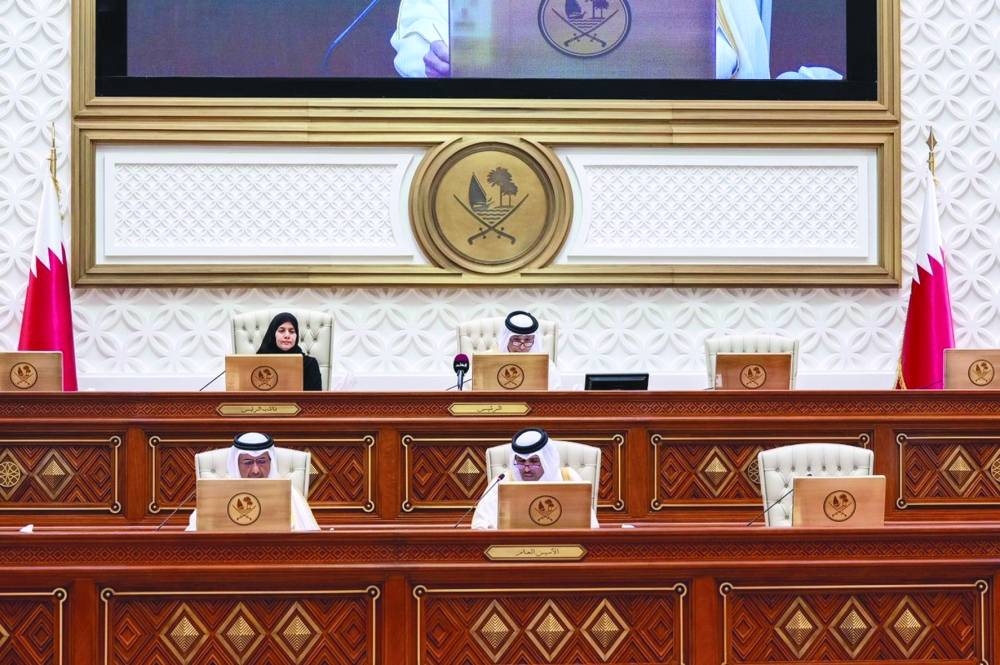The Shura Council held its regular weekly meeting Monday at Tamim bin Hamad Hall under the chairmanship of HE the Speaker Hassan bin Abdullah al- Ghanim.
During the session, the council reviewed the request for a general discussion submitted by several of members on "the increasing divorce rates in society".
At the outset, HE the Speaker stressed the centrality of the family, which represents the basic building block of societies. He referred to Qatar's Constitution that stipulates, "The family is the basis of the society. A Qatari family is founded on religion, ethics, and patriotism. The law shall regulate adequate means to protect the family, support its structure, strengthen its ties, and protect maternity, childhood, and old age."
HE the Speaker added that Qatar National Vision 2030 emphasises social cohesion and the need to maintain a cohesive and strong family that takes care of its children and is committed to moral and religious values and ideals.
In turn, members of the Shura Council pointed to the dangers facing family stability in the face of an increase in divorce rates, pointing out that the most common age group in which divorce occurs, according to statistics, is the youth group.
They warned that divorce is one of the negative phenomena in society that should be curbed because of the many problems that divorced persons and their children suffer from, which is reflected in the stability and progress of society.
In a related context, the members praised the interest of the state institutions attached to this phenomenon to reduce it through the implementation of rehabilitation programmes for those about to get married and other efforts, pointing out the need to redouble efforts in this context due to the negative effects of divorce on the family, children and society as a whole.
They stressed the need to intensify awareness and educational campaigns on the importance of preserving the family entity and to include this in the school curricula to provide young people with the knowledge, skills, and behaviours that contribute to the formation of a cohesive and strong family.
They attributed the increase in divorce rates to several reasons, including poor awareness of the importance of the family and the changes that occurred in society, particularly the spread of social media, which led to cultural changes that affected the family entity.
The members of the Shura Council presented several solutions and proposals, particularly reviewing the legislation and laws related to the family, working to ensure that the law guarantees the continuity of the marital institution, and taking measures to reduce the incidence of divorce.
After extensive discussions by the members of the Shura Council, the council decided to form an interim committee to study this issue and submit its report to the Council.
During the session, the Shura Council also reviewed the report of the participation of its delegation, headed by HE Deputy Speaker of the Shura Council Dr Hamda bint Hassan al-Sulaiti, in the 17th session of the Conference of the Councils of the Member States of the Organisation of Islamic Cooperation and the accompanying meetings, which took place in Algeria in January.
Also, the council reviewed the report of its participation in the high-level parliamentary conference on combating terrorism and preventing violent extremism and the role of African youth in this field, which took place in the Republic of Togo in January.

